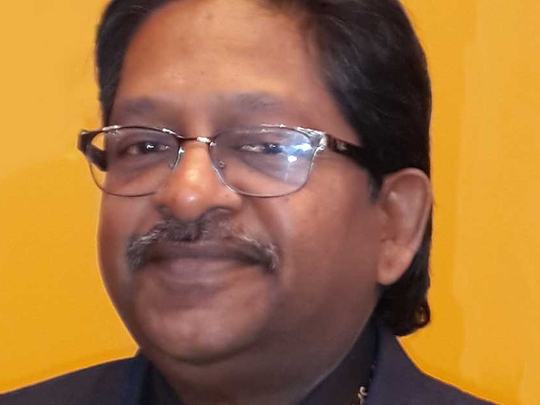
DUBAI: The Gulf Cooperation Council’s (GCC) sponsorship system is unlikely to weather the changes technology and disruption are wreaking in the employment market, Professor Christopher Abraham said on Wednesday.
Abraham, head of the Dubai campus and senior vice-president at the SP Jain School of Global Management, told the HR Conclave that between 40 and 50 per cent of the US workforce was engaged in freelancing.
On the sidelines of the conference, at Raffles Dubai, he explained why that would impact the UAE: “Some of these US companies are very seriously contemplating setting up shop here. It’s the sponsorship, the legalities. I think if not GCC, I think Dubai will take the lead in this area.”
The sponsorship employment system was already showing signs of relaxing, he said, with wives on husband’s sponsorship allowed to work part-time.
“Knowing Dubai, and having lived here for the past 20 years, I am sure we will take the lead. It’s inevitable. This is going to happen. It is a reality.
“One of the key things that we face is internship for our students ... Every time there’s this government partnership forum, we raise it. The good news is that because it’s been raised so consistently they are now taking serious cognisance of it and they are now talking to the federal government. Sponsorship is a federal matter, otherwise they’d do it straight away. I think by the end of this year they’ll come with a proper law that allows internship.
“Once they allow that, that means there are alternate ways of employment and freelancing will follow.”
He warned that GCC human resources departments would also have to change to keep up with global employment trends. As automation moves into new areas, human resources would have to focus on retaining and developing creative talent.
“I don’t think HR is cognisant of [automation],” he said. “Conventional stuff will be done by the robots. it will be a different realm of skills that we need ... Today, most accounting functions are done by software.”
The conclave, which focused on the transformation of work, saw several HR experts from the UAE discuss how their firms were handling technological changes, and how they were preparing for the future.
Mariam Elsammy, chief marketing officer of Dunia Finance, said tasks could be divided into operational tasks that could be outsourced and those which required judgement, which should be kept in-house.
Dr Nelson D’Souza, vice-president for leadership and management development at Emirates NBD, said it was increasingly important for HR professionals to recognise which staff preferred routine tasks and which disliked them. Ozlem Dirik, general manager for human resources at Marks & Spencer MENA (Middle East and North Africa), said that with automated checkouts and computerised stocktaking, human interaction would become even more important.












